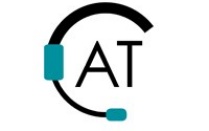Full citation
Juanola-Feliu, E., et al. (2012). "Market challenges facing academic research in commercializing nano-enabled implantable devices for in-vivo biomedical analysis." Technovation 32(3–4): 193-204.
Format: Peer-reviewed journal article
Type: Non-experimental study
Experience level of reader: Fundamental
Annotation: Nanotechnology is inspiring creative collaboration among different fields like medicine, biotechnology, engineering and the physical sciences presenting opportunities and challenges in research and development as well as knowledge management. Nanoscience is a new discipline rich with new discoveries that can lead to medical breakthroughs so it is essential that disciplines cooperate to best leverage findings. This paper is a case study examining strategies to add value to research and development.
Setting(s) to which the reported activities/findings are relevant: Community, Federal Lab, Government, Large business, Small business, University.
Knowledge user(s) to whom the piece of literature may be relevant: Clinicians, Brokers, Manufacturers, Developers, Intermediaries, and Researchers.
Knowledge user level addressed by the literature: Individual, Organizations, Sectors.
This article uses the Commercial Devices and Services version of the NtK Model
Primary findings
Barriers
- Outcomes from academic research are subtle, widespread and therefore hard to quantify. It is difficult to measure academic contributions to industry.
Case-based research
Occurrences within model: NtK 2.1 KTA 7.F - Universities commercialize relatively few inventions especially in cases where there is a lack of adequately trained staff or technology transfer services.
Case-based research
Occurrences within model: KTA 7.F, NTK 2.3 - Future research of a technology is linked to present commercial applications, which are dependent on knowledge transfer.
Case-based research
Occurrences within model: KTA 3.B, NtK 1.1, 1.4, 3.1
Carriers
- Universities are embedded in the regional innovation system as influencers promoting technological innovation and economic development in their regions.
Case-based research
Occurrences within model: NtK Step 3.8, KTA 3.F - Universities are capable of hosting basic and applied research and offering services like incubation that promote knowledge management and industrialization.
Case-based research
Occurrences within model: NtK 2.3, 3.1, 4.1 - There is a positive correlation between productive collaborations and small group size, access to complementary technical skills, stable research sponsorship, access to extramural resources and leadership.
Case-based research
Occurrences within model: NtK 2.3, 3.1, 4.1 - Removing disincentives and encouraging academic freedom fosters involvement from university inventors.
Case-based research
Occurrences within model: NtK Steps 2.3, 3.1, 4.1
Tips
Methods: Nanosynthesis is bottom-up development and nanomachining is top-down technology.
Case-based research
Occurrences within model: NtK NtK 4.2, 4.8
